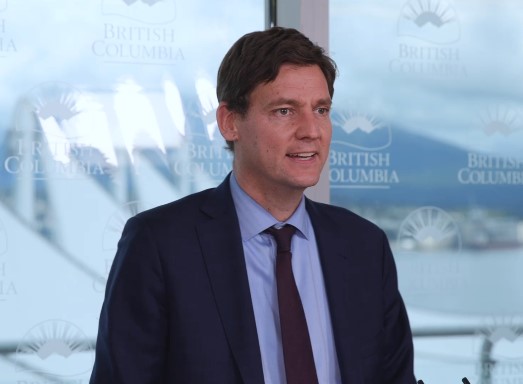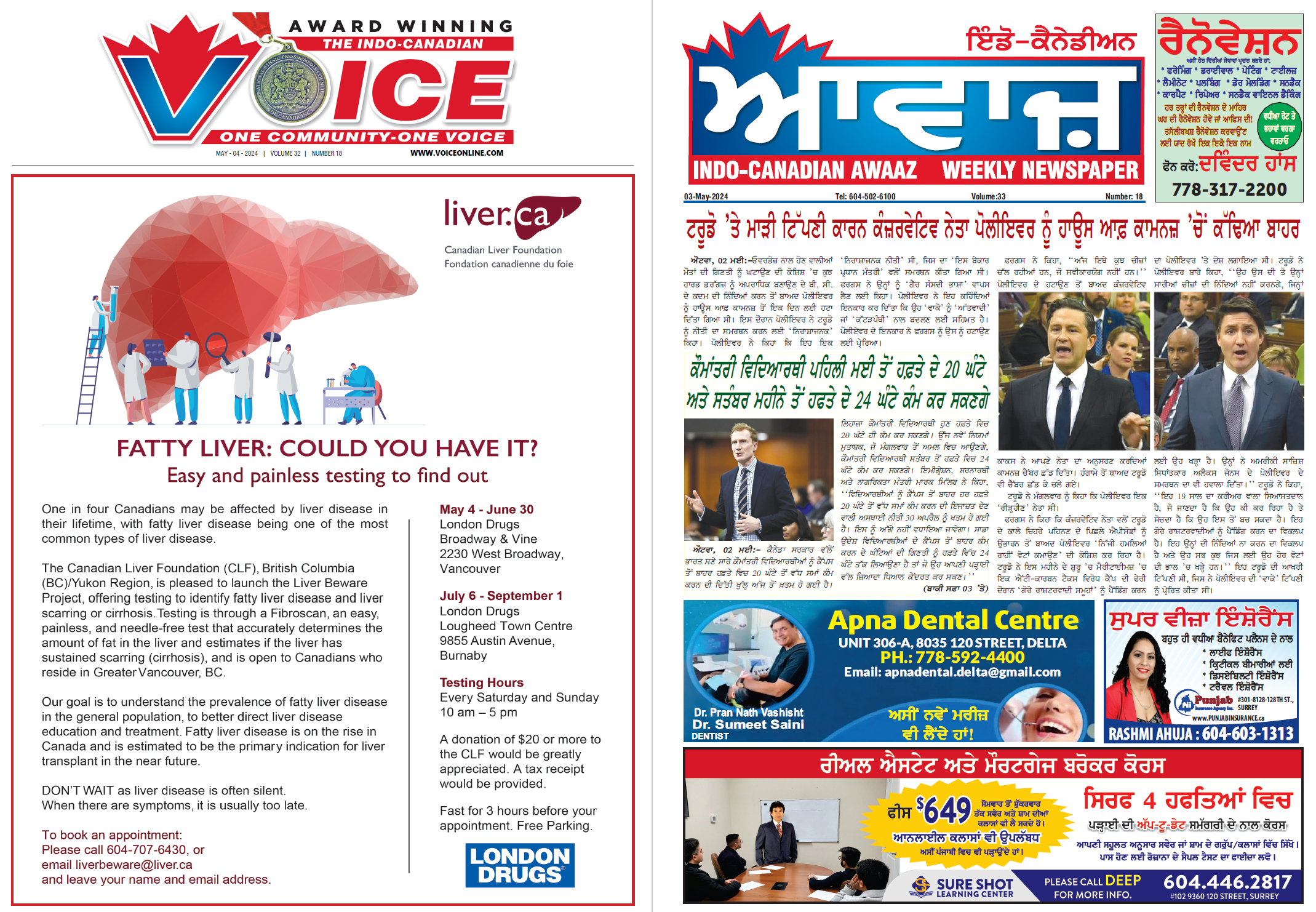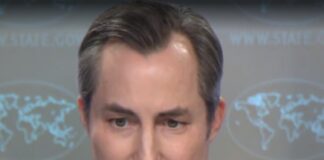THE Province announced on Friday that it is taking action to make illicit drug use illegal in all public spaces, including inside hospitals, on transit and in parks.
It said it’s part of several new measures it has introduced focused on providing police with more tools to address public safety while offering support and access to treatment for people living with addictions.
“Keeping people safe is our highest priority. While we are caring and compassionate for those struggling with addiction, we do not accept street disorder that makes communities feel unsafe,” said Premier David Eby. “We’re taking action to make sure police have the tools they need to ensure safe and comfortable communities for everyone as we expand treatment options so people can stay alive and get better.”
The Province is working with the federal government to make changes to the legality of possessing drugs in B.C. This will provide police with the power to enforce against drug use in all public places, including hospitals, restaurants, transit, parks and beaches. Guidance will be given to police to only arrest for simple possession of illicit drugs in exceptional circumstances.
When police are called to a scene where illegal and dangerous drug use is taking place, they will have the ability to compel the person to leave the area, seize the drugs when necessary or arrest the person, if required.
This change would not recriminalize drug possession in a private residence or place where someone is legally sheltering, or at overdose prevention sites and drug checking locations.
“Our communities are facing big challenges. People are dying from deadly street drugs and we see the issues with public use and disorder on our streets,” said Mike Farnworth, Minister of Public Safety and Solicitor General. “As we continue to go after the gangs and organized criminals who are making and trafficking toxic drugs, we’re taking action now to make it illegal to use drugs in public spaces, and to expand access to treatment to help people who need it most.”
The government will also improve safety and security for patients, visitors and health-care workers in hospitals. This includes a single policy prohibiting street-drug possession or use and additional measures to increase enforcement, support patients with addictions, and encourage them toward treatment and recovery.
Going forward, when patients are admitted to hospital, they will be asked if they experience any substance-use challenges. Patients will receive active support and medical oversight for addiction care to ensure people with addictions receive personalized care while their medical issues are being treated in hospital.
“Today, we are taking immediate action to make hospitals safer and ensuring policies are consistent and strictly enforced through additional security, public communication and staff supports,” said Adrian Dix, Minister of Health. “The action plan launching today will improve how patients with addictions are supported while they need hospital care, while preventing others from being exposed to the second-hand effects of illicit drug use.”
The Province is also expanding access to treatment for people struggling with addiction, including those who are most at risk of overdose by:
* increasing the availability and accessibility of opioid-agonist treatment (OAT), a medication-assisted treatment for people who have an opioid-use disorder, by implementing a provincewide virtual system;
* integrating addictions services with health care, housing and related services; and
* working with experts to develop methods to track prescribed alternatives with the aim of identifying and preventing diversion.
“People across the country are dying from poisoned drugs and B.C. is no exception,” said Jennifer Whiteside, Minister of Mental Health and Addictions. “Addiction is a health-care issue, not a criminal one, and we’re going to keep doing everything we can to save lives and connect people to treatment.”
Government is also investing $25 million to support and expand the Hope to Health Research and Innovation Centre located in Vancouver’s Downtown Eastside, to provide intensive primary care and other services to more people with highly complex medical and psychosocial needs. The innovative Hope to Health model of care is led by Dr. Julio Montaner, a world-recognized physician and researcher in HIV, and in the provision of comprehensive care to vulnerable and marginalized populations. This initiative will lay the foundation for potential expansion to other communities in B.C.
MEANWHILE, in a joint statement, BC United Leader Kevin Falcon and Elenore Sturko, BC United Critic for Mental Health, Addiction, Recovery and Education, criticized the NDP government’s latest request for exemptions to ban drug use in all public places, calling it a desperate attempt to salvage a failing policy:
Falcon and Sturko said: “Today’s announcement is nothing more than political damage control by David Eby to mask the obvious conclusion that his reckless decriminalization experiment has failed as he now tries to hide the chaos and harm his policies have caused. Over the past 15 months, it has become painfully clear that this policy has neither saved lives nor reduced drug overdoses, but has instead spread harm and disorder in communities across British Columbia.
“Instead of upholding their commitments to scrap the decriminalization pilot when it clearly wasn’t meeting its goals, David Eby and the NDP have stubbornly persisted with this dangerous policy. From its inception, the decriminalization experiment has failed to connect drug users with any necessary treatment or recovery services. The entire NDP approach has been built around normalizing drug use, which only further harms kids and communities.”
“A Kevin Falcon-led government will immediately end the NDP’s disastrous decriminalization strategy and taxpayer-funded drug diversion, and will implement BC United’s “Better is Possible” plan, which emphasizes treatment, recovery, and stringent enforcement against drug trafficking to restore safety and order to our communities.”











